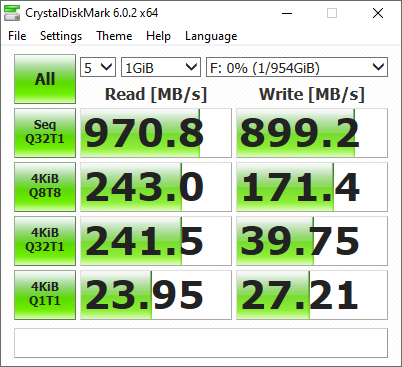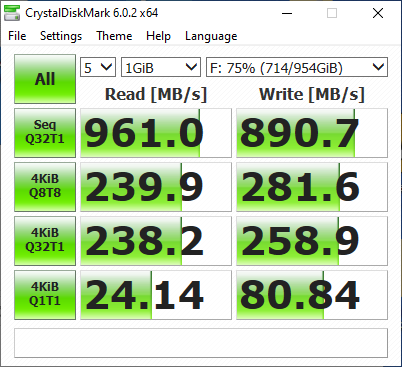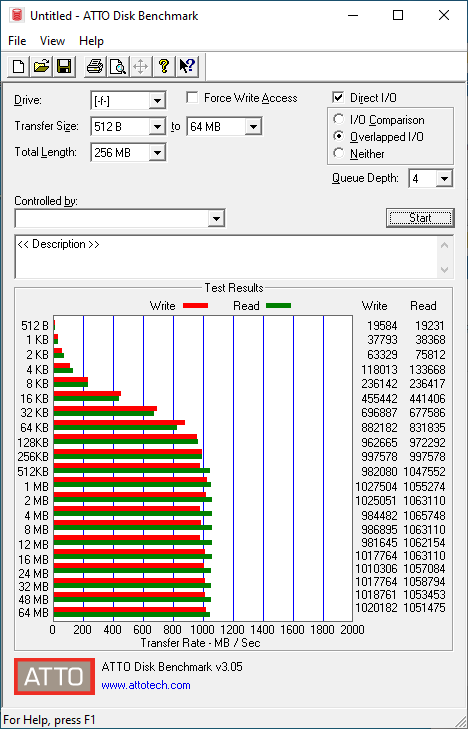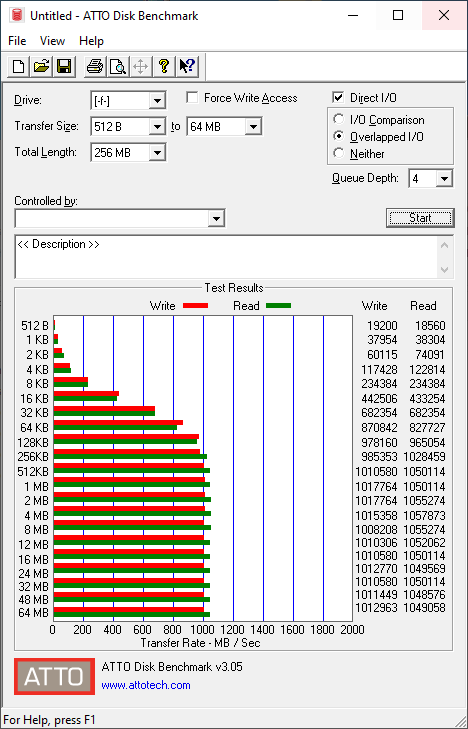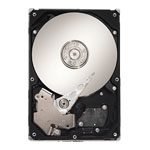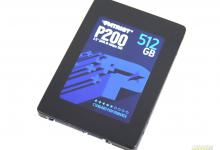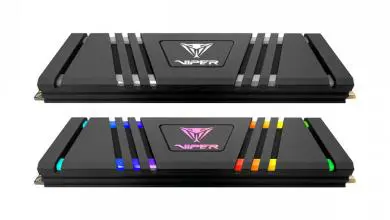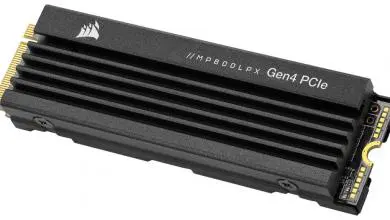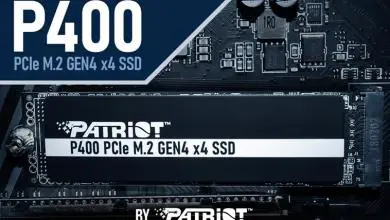Benchmarks
| System Configuration | ||
| Component | Product Name | Provided By |
| Case | Open Test Bench | |
| CPU | Intel Core i7 9700K | |
| CPU Cooler | Celsius+ S36 Prisma |
Fractal Design |
| Motherboard | EVGA Z390 FTW | EVGA |
| Ram | (2) 8GB Corsair DDR4-3200 CMW16GX4M2C3200C16 | Corsair |
| GPU | Radeon RX 5600 XT Phantom Gaming D3 6G OC |
ASRock |
| Monitor | BenQ EL2870U 28 inch 4K HDR Gaming Monitor 3840×2160 @ 60 Hz | |
| Hard Drives | Adata XPG SX8200 PRO (512GB) | Adata |
| Power Supply | Thermal Take Tough Power RGB 80 Plus Gold 750W | |
The following benchmarks were performed via USB 3.2 connection to achieve the highest throughput available.
Crystal Disk Mark benchmark at 1GB test size:
Unlike CrystalDiskMark, the ATTO disk benchmark is a 32-bit compressible data benchmark that measures read and write speeds across various file transfer sizes from 512B to 64MB to show SSD behavior.
Stock (or empty) drive benchmarks showed me that the maximum attainable throughput speed is close to 1000 MB/s or 970MB/s Read and 899MB/s on Write via Crystal Disk Mark. When the drive was loaded up to 75% the benchmark result did not deviate much in fact they were extremely close with 961 MB/s Read and 890 MB/s Write. In the Crystal Disk Mark, we were using 1GB chunks.
For smaller file size benchmark I have used the ATTO Disk Benchmark. In this benchmark, I achieved speeds up to 1020MB/s on Read and 1051MB/s on Write when looking at the Stock (empty drive). The 75% load test showed the same stability as we saw in Crystal Disk Mark. Read speeds recorded with the drive being 75% full were up to 1012MB/s and write speeds up to 1049MB/s.
In short, the advertised speed of PXD corresponds to our benchmark data.
